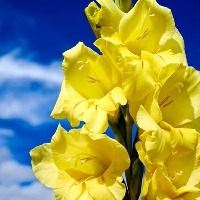Fine brushwork has established a set of rigorous technical system in the long-term historical development, thus forming the unique style of this painting. Fine brushwork is also called "fine brushwork". It is one of the categories of painting techniques, symmetrical with "freehand brushwork".
What kind of painting does meticulous painting belong to
One of the categories of Chinese painting.
Fine brushwork is characterized by fine portrayal, accurate modeling, and attention to the charm of lines. It is not only different from traditional Chinese freehand brushwork and minus strokes, but also different from western realistic painting. It is generally believed that the early form of meticulous painting can be traced back to the silk painting in the Warring States Period.
After the development of Wei, Jin, Sui and Tang dynasties, fine brushwork became prosperous in the Song Dynasty and the Qing Dynasty, and fine brushwork was gradually replaced by ink and wash freehand brushwork, and gradually declined. In modern times, meticulous painting has returned to the mainstream and entered the stage of diversified development.
What are the characteristics of fine brushwork
1. Line
Modeling with lines is the characteristic of Chinese painting techniques, and also the foundation and backbone of meticulous painting. Fine brushwork requires neat, delicate and rigorous lines. Generally, the center uses more pens.
2. Color
It is mainly solid colored. Generally, it is bright, calm, bright and elegant, with uniform colors, and has strong aesthetic interest of Chinese national colors.
3. Decorative and plane sense
Decoration is an indispensable factor in meticulous painting. From composition, line drawing, color design to image details, they all have a certain sense of plane and decoration.
The artistic value of fine brushwork
Fine brushwork uses line modeling to weaken the sense of volume of objects and strengthen the contour. This flat image features prominent decorative. At the same time, elements such as clouds and waves in traditional fine brushwork are also linearly summarized, and the painters refine and simplify lines to make them simple symbolic patterns.
In traditional meticulous painting, the object color is related to the emotion that the painter wants to convey, not directly from the solid color, which avoids being limited by the actual light, shadow, shape and other factors. In addition, the use of various stone pigments by the painters makes the colors of fine brushwork rich and harmonious, with a sense of decorative beauty.
The development of fine brushwork to the contemporary stage not only represents a painting type of Chinese painting - that is, a neat and delicate way of painting, but also is an expression of the Chinese cultural concept of "work".

